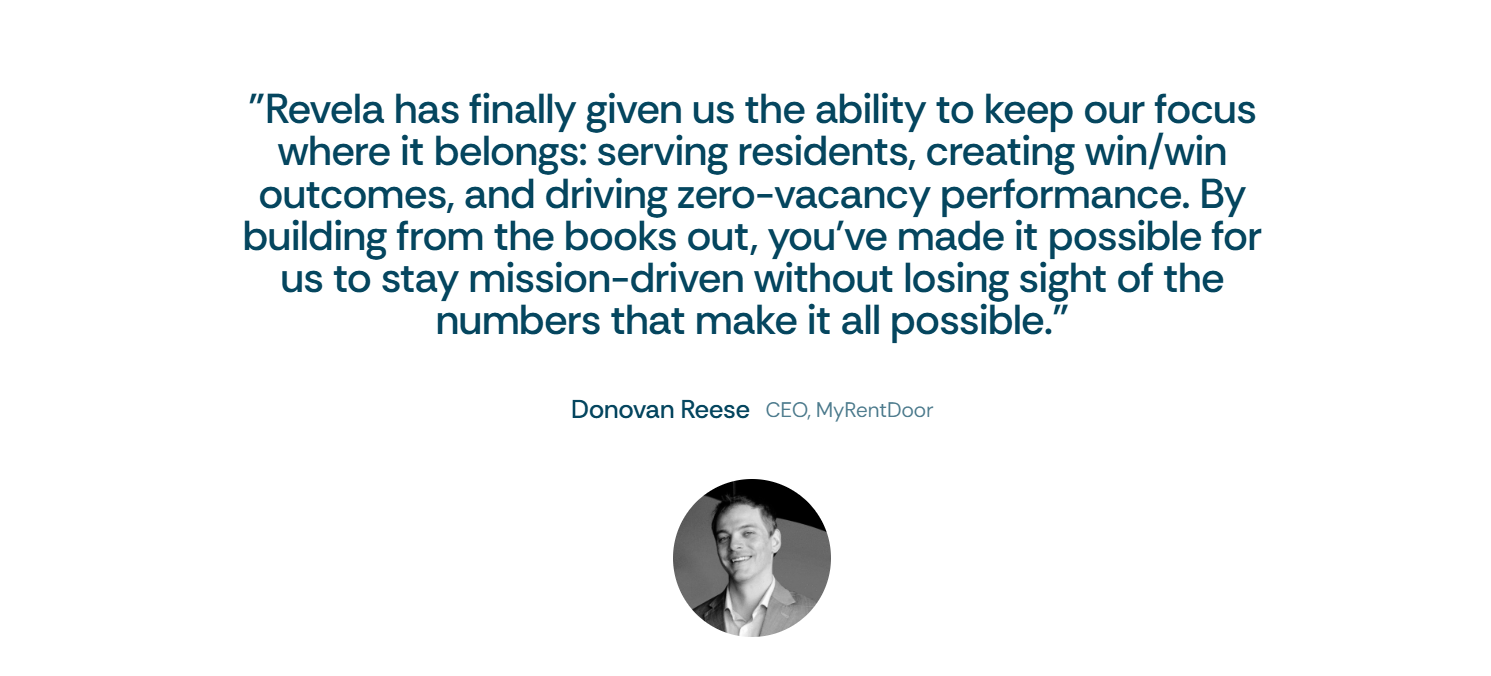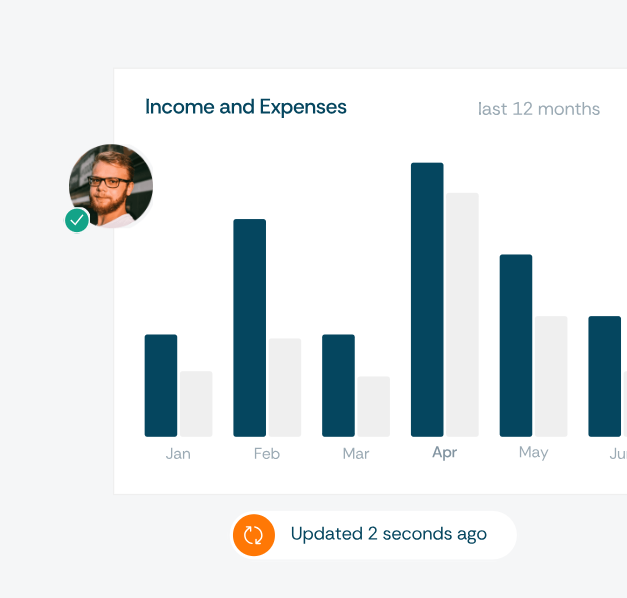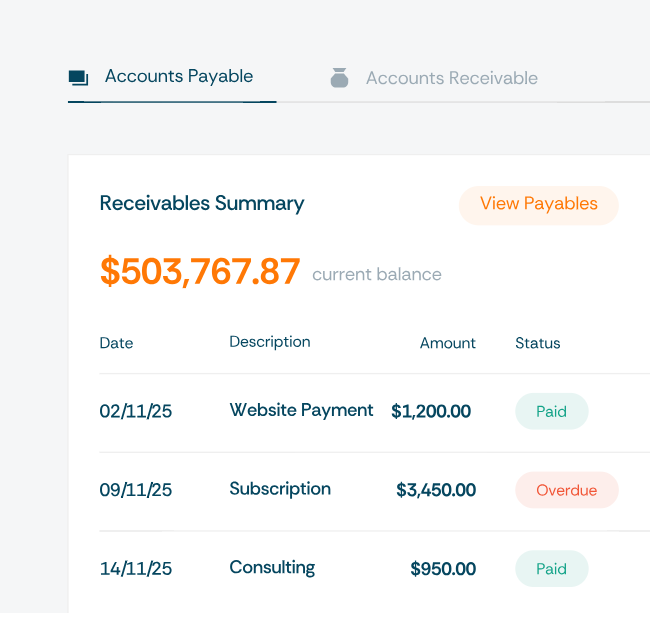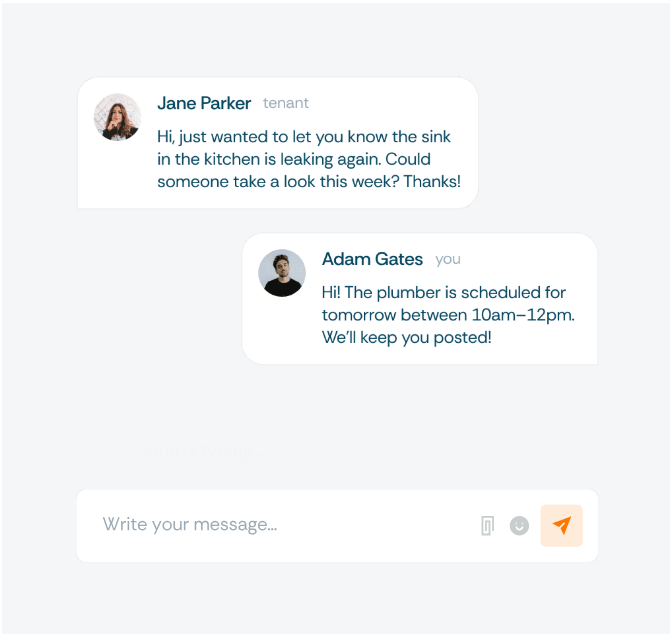

The Ultimate Guide To Managing Single-Family Property Operations
10.28.2025

Quick Summary
Single-family property operations can be demanding across leasing, accounting, and maintenance. This guide outlines the top challenges managers face. Learn how Revela streamlines operations and supports scaling with enterprise-grade trust accounting, customisable maintenance workflows, embedded banking, and more.
How To Simplify Single-Family Property Operations
The single-family housing construction market is projected to hit $1.02 trillion by 2029, and as it grows, more property managers are struggling to keep up with operational demands. Each single-family property is distinct and demands individual attention.
As your single-family property portfolio grows, tasks like lease tracking, maintenance management and account reconciliations will get more complex. The smallest mistakes can result in costly setbacks, ranging from revenue loss to high tenant turnover.
In this guide, we explore key single-family property operations, the challenges managers face, and how to optimise operations while scaling.
Why Listen to Us?
We build modern technology that empowers property managers to efficiently scale operations and increase business revenue. With our user-friendly workflows, real estate companies streamline accounting, maintenance, and reporting for thousands of residential units.
The result? Time saved, costs cut, and portfolios grown.

This guide draws on our firsthand experience with the challenges managers face in single-family property management, and the strategies that help resolve them.
What Are Single-Family Property Operations?
Single-family properties include bungalows, ranch-style homes, townhouses, mansions, and cottages. So, what is it that makes these different properties fall under one category?
A single-family property is a detached residential building designed to house one family. In some places, it is called a standalone property and usually comes with a private entrance, separate utilities and lease agreements.
Single-family property operations are numerous, but some of the most important tasks include leasing, accounting, maintenance, compliance, reporting, and communication. Let's explore each.
1. Leasing
This includes all the processes relating to sourcing and marketing available single-family properties. It comprises screening potential tenants, collecting rent, managing lease agreements, and managing tenant relationships.
2. Accounting
Accounting in single-family property management involves recording, tracking, and reporting all financial activities for each property. It details all sources of income as well as operational expenses to simplify account reconciliation and financial reports for stakeholders.
3. Maintenance
For single-property homes, maintenance operations include receiving, responding to, and resolving maintenance requests from tenants. Managers also carry out regular inspections to ensure the property is in good condition.
4. Compliance
This task involves ensuring your processes and operations comply with the laws governing single-family properties. Some of these laws include landlord-tenant laws like the Fair Housing Act, laws on lease agreements, laws on security deposits, and laws on tenant screening, among others.
5. Reporting
Here, property managers provide stakeholders with precise data about each property’s financial and operational performance. Reporting may include monthly or quarterly reports that cover financial data, cash flow summaries, and updates on current property conditions.
6, Communication
Good communication and fast response times foster a trusting relationship between property managers and owners, tenants, or vendors. It involves providing relevant parties with regular updates to prevent misunderstandings and ensure that tenants feel valued.
How Single-Family Operations Differ From Multi-Family Operations
While single-family homes are built for one family, multi-family properties, such as apartment buildings, are designed to house multiple families,. As a result, their management operations are quite different from those of the former.
In single-family homes, the systems that keep the property running are separate from those of other homes in the area. However, for most multi-family properties, the units share systems and facilities, such as HVAC fixtures and water tanks.
As such, multi-family property management operations, such as rent collection and maintenance, tend to follow a standardised system that applies to all tenants in a building rather than the personalised style for single-family properties.
Top Operational Challenges in Single-Family Property Management
Although the single-family property market is thriving, its operational challenges can quickly overwhelm even the most experienced managers.
Below is a breakdown of how disconnected accounting systems, inefficient maintenance coordination, poor data visibility, and legacy software threaten single-family property managers.
1. Disconnected Accounting Systems
Single-family property management involves tracking multiple incomes and expenses, as well as reconciling various bank accounts. When managers rely on manual processes, multiple spreadsheets, and standalone software for single-family property management operations, the result is disconnected, error-prone systems.
A lack of complete, real-time financial data across different accounts can lead to inaccurate reports, which in turn can slow down or misguide decision-making. Such systems also cause financial mistakes, such as duplicate vendor payments or lead to compliance issues.
2. Inefficient Maintenance Management
When maintenance reporting and vendor management rely solely on phone calls and emails, managing the wide range of maintenance requests typical of single-family properties becomes burdensome. Often, smaller issues will slip through the cracks until they escalate into expensive emergencies.
Ignoring or delaying tenants’ maintenance requests leads to dissatisfaction, frustration, and higher turnover rates. Without a centralised digital platform for vendor management, managers face inconsistent communication, manual vendor evaluation, and poor tracking processes, which can result in financial losses, property damage, and safety risks.
3. Poor Data Visibility
Poor data visibility results from having lease, financial, operational, and performance data scattered across outdated systems in different formats. Disconnected data creates blind spots, especially in areas such as pricing and marketing.
The lack of complete, data-led insights makes managers miss opportunities to evaluate operational performance, identify problems, and grow their business. It also delays and distorts owner reports, which is bad for manager-owner relationships.
4. High Switching Costs With Legacy Software
Legacy software, or outdated software, is built on old technology that may no longer support the requirements of your business, especially as you scale. The older the technology, the more vulnerable it is to security risks and system failures.
Most legacy property management software are hard to integrate with essential tools because they lack modern APIs. Yet, the cost and complexity of switching to a more integrated platform lead many managers to stall — leaving them stuck with fragmented, manual workflows and inefficient software.
How to Build Scalable Single-Family Property Operations
To scale a single-family property operation, you must design and maintain an automated, digital system that addresses the challenges of single-family property management. For instance, real-time financial reporting will fix poor data visibility and improve accounting accuracy.
Below are five essential steps to start with.
Step 1: Centralise Data Management
Centralising data management means bringing accounting, leasing, maintenance, and other property management data into one unified system. Instead of shuffling between disconnected spreadsheets and standalone tools, think of a centralised, cloud-based platform — a single source of truth you can access anytime and anywhere.
Single-family property management software that centralise data management also enable automation for tasks like financial reporting. This reduces data errors and saves the time usually spent on cleaning, verifying, and reconciling data collected across single-family property accounts.
Step 2: Automate Workflows
Financial reporting is not the only task you’ll need to automate when building a scalable single-family property operation. Automating your workflow involves leveraging technology to streamline everyday tasks, such as rent collection, payment tracking, maintenance request management, and document storage.
By automating workflows, you build a proactive system that anticipates your operational needs, rather than reacting to them. Some automations that reduce manual processes and increase efficiency for single-family property operations include:
- online portals where tenants can submit maintenance requests, attach photos and track progress in real-time
- automated welcome emails to new renters that smoothens onboarding without manual follow-up
- automatic account reconciliations to reduce errors and save time on manual data entry during rent collection
Step 3: Get Real-Time Reporting and Insights

Forget periodic reporting; real-time reporting gives you 24/7 access to updated operational data. All-in-one dashboards that provide a full overview (or at least a concise summary) of your property operations in one place.
These systems automatically track rent payments, maintenance requests, and other relevant metrics to give you an accurate picture of the current operational status and conditions of properties in your portfolio. This information enables you to address issues in time and make informed decisions.
Step 4: Embrace Trust Accounting
The fourth step is to add trust accounting to your operations. You cannot scale a business that is constantly struggling with compliance or accounting issues.
You can replace manual accounting processes with compliant, automated systems. Establish clear policies for handling financial activities with transparency.
Look for digital tools with built-in trust accounting features, such as automatic reconciliation and transparent financial data tracking. Choose software that organises reports efficiently to simplify audits.
Step 5: Use Integrated Systems
Implementing a fully integrated single-family property management system brings all the elements together. An integrated system combines multiple accounting, data management, reporting, leasing, and maintenance management into a single platform.
By eliminating the need for multiple disconnected tools, a modern all-in-one system boosts efficiency and provides a foundation for scaling single-family property operations. If this sounds like what you need, you’ll want to meet Revela.
How Revela Optimises Key Areas of Single-Family Property Operations
While the cost and complexity of replacing legacy software is a real concern for single-family property operations, Revela simplifies the transition with a seamless onboarding and implementation process. We offer competitive pricing and consolidate multiple tools into one powerful solution.
Revela is an all-in-one property management platform designed to simplify operations and maximise profit for real estate managers, investors, and institutions. Unlike most legacy software, Revela is built ledger-first, with reconciled accounting at its core; this means faster month-end closes and accurate reports.
With its modern interface and flexible capabilities, Revela empowers property managers to support growing portfolios across all asset types. Here's how Revela delivers the accounting precision, reporting flexibility, and operational control required to scale single-family property operations.
1. Enterprise-Grade Trust Accounting

Revela’s built-in audit-ready accounting features include:
- Automated Reconciliation: Real-time transaction matching and automated bank reconciliation that eliminates manual cleanup.
- Real-time Financial Reporting: Up-to-date financial reports to enable stakeholders to make faster, more informed decisions.
- Property, Portfolio, & Entity-Level Accounting: Customisable Charts Of Accounts (COAs) designed to match real client structures, supporting both full portfolio overviews and asset-level insights.
- Accounts Payable & Accounts Receivable: Vendor invoicing and tenant payments in one place to visualise cash flow and enhance transparency.
- Data Security: Protect financial data with SOC 2 compliance and enterprise-grade security protocols
2. Customizable Maintenance Workflows
Maintenance operations, including expense tracking, vendor and tenant communication, request intake, and even inspections, are all managed directly in the platform, with no third-party tools. Each function is tailored to diverse property types, including single-family properties.

3. Dedicated Portals For Tenants, Owners, and Vendors
The integrated communication portals provide dashboards for tenants, owners, and vendors with real-time updates for faster coordination and issue resolutions. These dedicated portals also connect to financial tools, enabling quick in-platform payments.

4. Embedded Banking
Revela's integrated banking feature allows you to open accounts, collect rent, pay vendors and make owner disbursements, without leaving the platform. You can issue and manage physical and virtual debit cards, process payments directly, and track every dollar spent.
5. Seamless Integration
Revela is built with a powerful, open API that allows it to connect to your favourite tools, data, and workflows. You can partner with our team to create custom integrations that fit your operation.
Scale Your Single-Family Property Operations With Revela
The challenge with single-family property operations is the lack of a flexible, intuitive management system that accounts for their complexity. The best property management solution for assets in this category should simplify processes, promoting accuracy, transparency, and speed.
At Revela, we’ve built modern property management software that integrates key functions into a single, unified system with a focus on:
- Accurate, GAAP-compliant trust accounting
- Real-time reporting
- Embedded payments
- Centralised maintenance tracking
Book a free demo to see how Revela’s unified platform delivers GAAP-compliant trust accounting, audit-ready books, faster closes, and the financial clarity you need to scale single-family property operations.
.jpg)

